My sister, Monica, and I were talking one day after Hurricane Helene knocked the power out for over a million people in my state. Monica suggested I write about my list of things to have in place before the next big emergency. So, here’s my tentative “preparedness list” for the next disaster in no particular order of importance.
Of course, there is no way to be one hundred percent prepared in a given situation. It’s impossible to know exactly how events will play out, and each family’s circumstances will dictate what is needed. However, losing our power for as long as we did was particularly clarifying. Perhaps as I brainstorm my own list here, it will spark trains of thought for you and help get you started on yours if you haven’t started already.
We need a generator. At least a generator strong enough to run the freezers and the refrigerator. Our power rarely goes out for longer than a few hours around here. We typically keep the refrigerator and freezers closed and everything keeps cool/frozen just fine until the power returns. But after Helene, the power was out for five days. Many more thousands in our county didn’t get it back until over a week had passed. A generator would help keep all the essentials running, prevent food waste and save a bundle of money in the long run. What would really be ideal, is to get a generator powerful enough to plug into the main electrical system of our entire house. Our friends have one of those, and thank goodness, because their power was out much longer than ours. Generators that powerful cost a good bit, so that may be something we work towards over time and get a less expensive generator to hold us over until then.
Camp stove. What I’d really prefer is a gas powered stove and oven. This may or may not be possible for us, as we’re not sure gas lines are available far out here in the sticks. When I was a little girl in Michigan, we had gas stoves in nearly every home we lived in. This made power outages much easier to deal with, because the stove ran independent of electricity, and we could cook and heat water for dish washing and bathing with no trouble. In the mean time, a propane fueled camp stove would be a great intermediate tool. My brother-in-law and his wife loaned us theirs while our power was out, and it made cooking a whole lot easier while we waited. Water is not a problem for us as we are not on a well. However, a nearby town found themselves under a boil water advisory as the water plant was unable to keep up with purification. Another good reason to have a working stove burner.
Heating. Heating is something we in South Carolina only have to worry about for a very short part of the year. Most of the year, the biggest concern is staying cool. Happily for us, our house had a gas log stove in the living room when we moved in. So, as long as we keep the propane tank full, we could heat enough of the house to keep from freezing should our power go out in January. If I lived in a colder region of the United States, though, I’d get set up with a wood stove right away.
Lighting. Certain areas of our house are really dark even in the middle of the day. The kitchen is, unfortunately, the darkest room in the house due to the way the previous homeowner added on to the back of the home. This was my chief frustration while the power was out. I couldn’t see to do almost anything in there! Even lighting every candle I owned didn’t brighten it enough to sweep the floor the old fashioned way with a broom and dust pan. So, I need to invest in some kerosene lanterns and/or battery powered lamps. Some friends of ours loaned us a kerosene lamp that I loved because it was so easy to use and came with a handle. Some of the older chimney style kerosene lamps are a little nerve wracking to use because there are so many breakable parts and the flame isn’t as well contained. The lamps I’d like to invest in look more like this:
These are widely available all over the web and they really brighten up a room quickly. I also really enjoyed using some battery powered light bulbs that my mother-in-law let us borrow. They were even brighter than the lanterns. The downside is that they quickly ran out of battery power and needed to be screwed into a lamp connected to a generator in order to charge. I can still see the utility in these for those times when you have to have very good lighting for short periods of time. These bulbs are available on Amazon. I like that they have little hooks on the bottom of the battery parts. I was able to hang them on my kitchen cupboard handles so I could see to wash the dishes.
Coffee Conundrum. Alright, this next item betrays me as a spoiled rotten American. It’s true. I am. I like my hot coffee every morning, and one of the things I missed most about no electricity was not being able to make coffee at home. The coffee maker obviously didn’t work until we were able to borrow a generator. Which means there’s only one solution: Invest in a low tech, old-fashioned way to make coffee! Or do without it entirely. But I’m not prepared to go that far quite yet. So, clearly I need a stovetop, old timey coffee percolator to stick on my camp stove. These things have practically gone the way of the dinosaur. My mom remembers waking to the smell of coffee percolating on the kitchen stove in the mornings, and believe it or not, so do I. We somehow managed to get our hands on one of these when I was a teen. Probably found it at a thrift store, knowing us. We mostly used it on Sundays back when our church met in my parent’s home. Turns out, they are still being made. I’m pretty sure I’ve seen them in the Vermont Country Store catalogues. (Who doesn’t love to page through a good Vermont Country Store catalogue?! They’re so much fun.) But once again, you can also find them more reasonably priced on Amazon. I’m rather fond of this one because it looks old-timey and I am a sucker for old-timey stuff.
Of course, a French press is also a good low-tech option, but I prefer a percolator because French presses don’t keep the coffee hot for very long.
Currency. Though our area faired much better than our neighbors in North Carolina and Tennessee, the old adage “cash is king” proved correct. When the chips are down, good old cash is the safest and most reliable option. People get squirrely about keeping cash at home for security reasons. That’s understandable I guess. However, I was so glad that we had a good amount of cash on hand. It was kind of accidental. We only had it on hand because we were having difficulties depositing the stuff in the bank. (Online banking: It’s so convenient until it’s not.) Anyway, there were several instances when the only way to purchase things we needed was with cash because grocery store computer systems were completely down. In the first couple days after the hurricane, it’s unlikely we would have been able to find a working ATM or get it from the bank. It was quite instructive. For the longest time, my husband and I as typical millennials simply didn’t carry cash with us. But after this experience, I’m going to make sure we have cash on hand at all times.
Hygiene. It really wasn’t much of an issue for us, thankfully. We were able to shower at friends’ homes, and even if we hadn’t had that option, cold showers never killed anyone. The main thing I was getting concerned about long-term, was washing clothes. Now when we successfully get a really tip top generator hooked into the house’s electrical system, that won’t be an issue. But until we have that, I want to come up with a way to wash clothing without a washing machine. If the power had remained off for two weeks, things would have become rather smelly around here. I figure if I can get a camp stove, I can heat water on a burner to wash clothes in. So, I need a couple of large tubs and a clothesline. I’ve been wanting to put in a clothesline anyway, we just haven’t got round to it yet. Believe it or not, you can also still buy a hand crank clothes wringer! Just attach it to your bucket or tub and wring away. Probably not strictly necessary, but it could be a nice addition to the over all preparations once more important items are squared away.
Canning. I am still not set up to do a lot of canning at our home, but I think that’s something I want to invest in. I have shied away from canning a lot of meat in the past due to my health issues. Canned meat, for instance, contains high levels of histamines and I’ve had issues with mast cell activation syndrome and high histamine levels in my bloodstream. These two problems can cause a lot of unpleasant physical symptoms for me. However, it’s better to have slightly problematic food to eat than a freezer full of spoiled meat or nothing at all. So, I need to research and learn how to can meat specifically. Shelf-stable foods that don’t require freezing or refrigeration would have been so handy to have around. I don’t buy canned soups because of the health issues mentioned above and the limited diet I must maintain. But I could very easily make my own soups and stews with ingredients I’m allowed to eat and can those myself. On a no-power day, I could just open up a can of my own homemade soup and heat it up on the camp stove. Something to work towards…
Wood Burning Cookstove. This item isn’t anywhere in our immediate future. But one day, I’d really like to get a wood burning cookstove and oven and learn how to use it. Ultimately, I want to have the option of being able to cook and bake without relying on a shipment of fuel. Propane and gas have to come through gas lines or delivery trucks. Gas lines can fail, and there were plenty of people who couldn’t get these deliveries around us because fallen trees blocked the roads leading to their homes. One thing we do have plenty of is wood to burn all around us. So, I’d like to invest in a wood cookstove. I can put it out on our enclosed porch and get to work learning how to use it! Something along these lines would be ideal:
These are the main things on my disaster list. Jonathon and I will be working on checking things off this list as we’re able in the coming years. How about you? Have I left anything off of importance that you can think of? If so, I’d love to hear your thoughts. Let me know in the comments.
As a final thought, I want to stress that none of this can take the place of relying on the provision of Christ in our lives. We can do our best to prepare, but as I pointed out in last week’s piece, only God knows what’s coming. It can be tempting to run around frantically trying to mitigate disaster and cover our bases in a spirit of anxiety and panic. But that does no good, because we can’t know the future and we can’t possibly think of everything. As in all things, we must “do our best and leave the rest to God.”
That’s all for now. Until next time, folks…
P.S. If you enjoy reading my weekly brain dump, please consider upgrading your subscription from free to paid. This will help me devote more time to writing interesting things for you to read as well as help me get my two novels in print! Thanks for considering this, and I hope you have a fantastic week! See you next time.
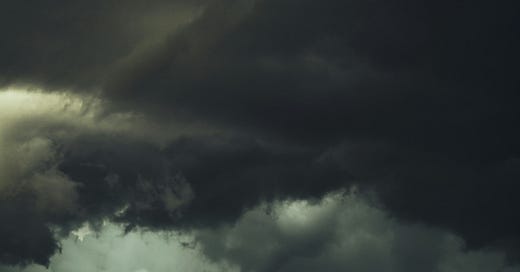


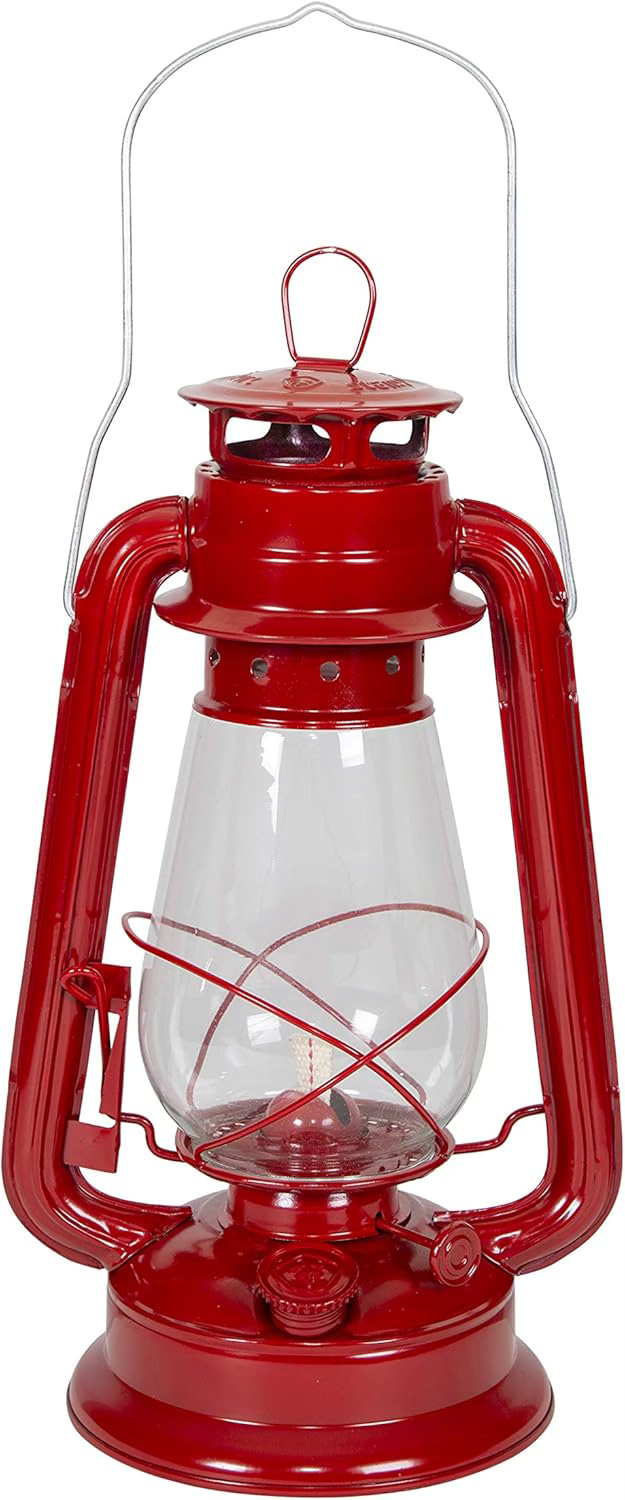
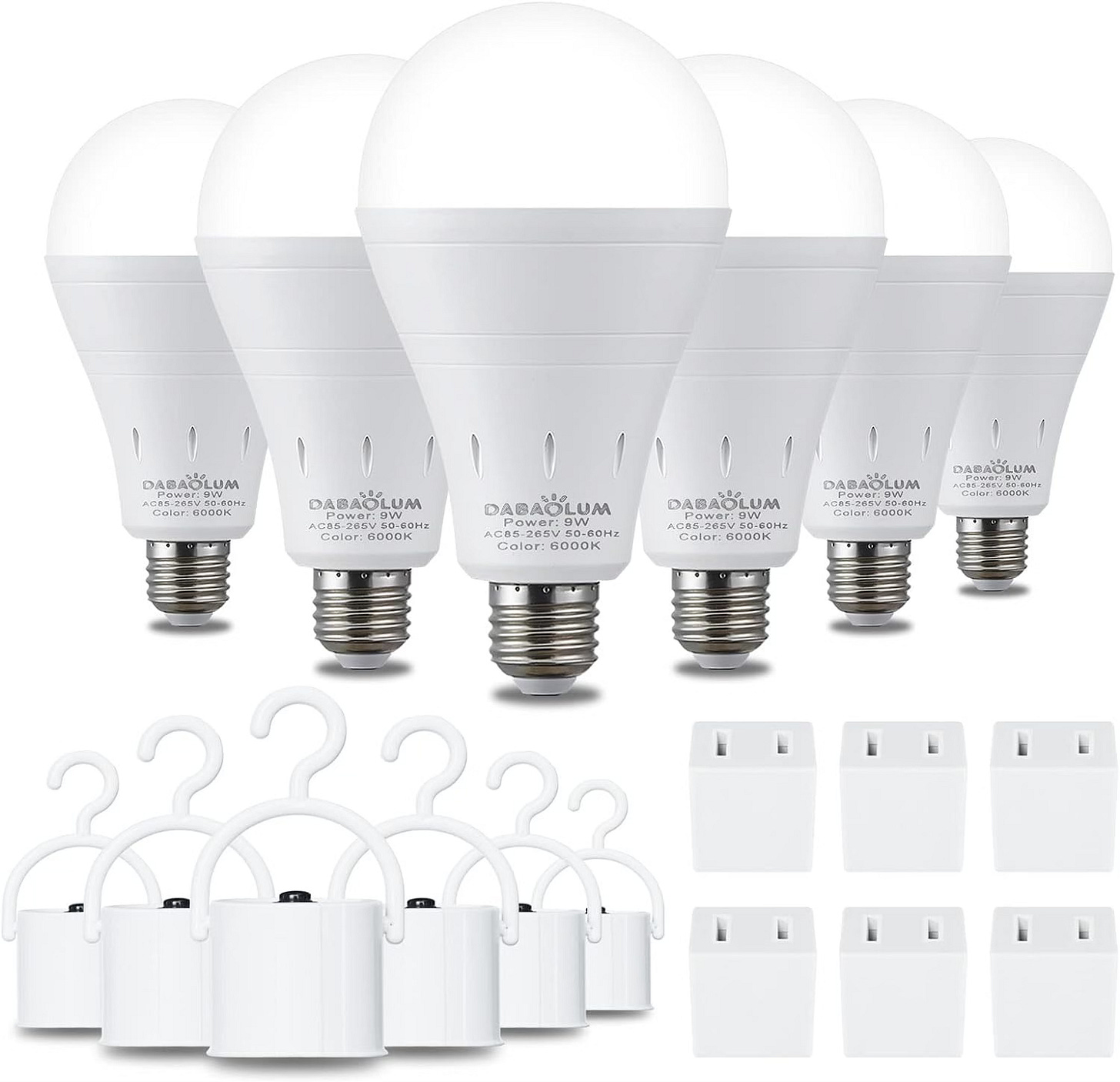
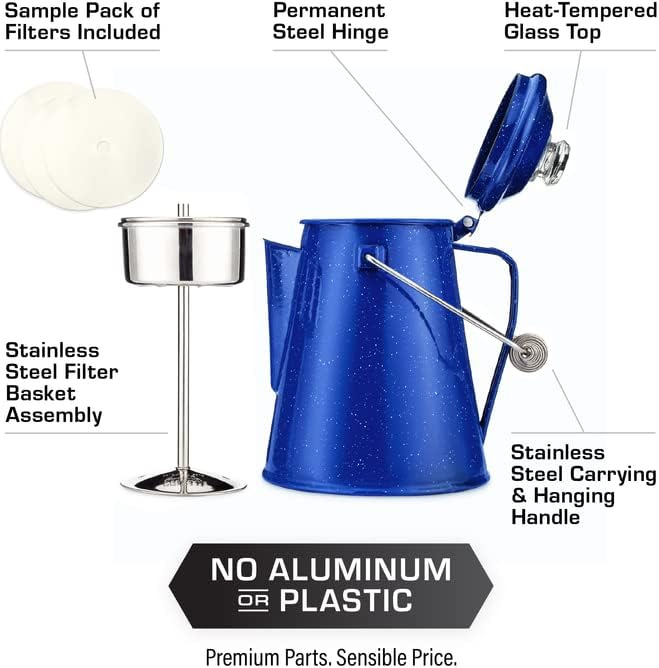
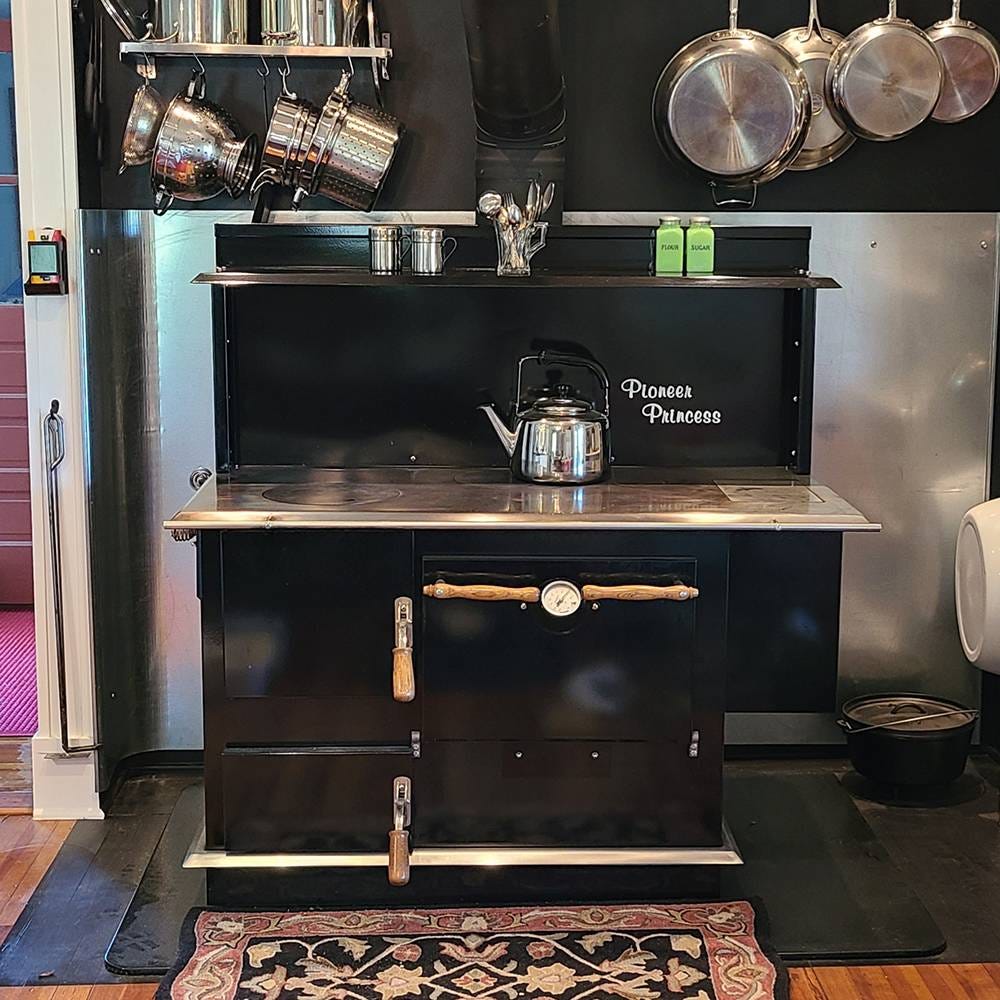
Instant coffee. Sometimes you can power up items in the car. Could cook over an outdoor camp fire.
Remember your generator will consume a significant amount of gasoline, so add 4 or 5 Jerry cans to your shopping list. Also you should consider dual fuel which also run off propane tanks. A 5-gallon gasoline tank weighs about 40 pounds, sometimes difficult if you are a smaller person, where propane is 20-25 pounds. If your house has natural gas, great news, there are tri-fuel generators which will work with natural gas. I only bring this up as when power is out, the pumps at gas stations are too. Good for you for being pro-active and getting ready for an emergency before it shows up on the weather channel!